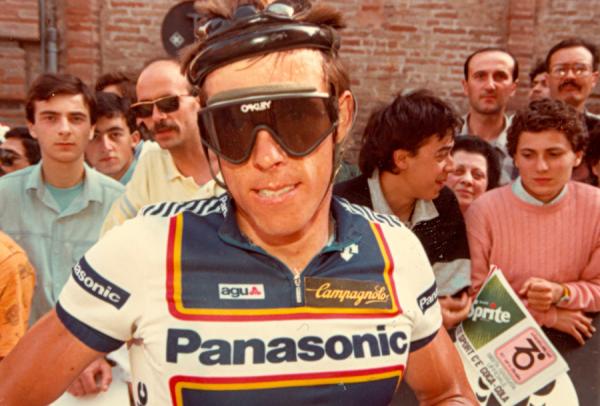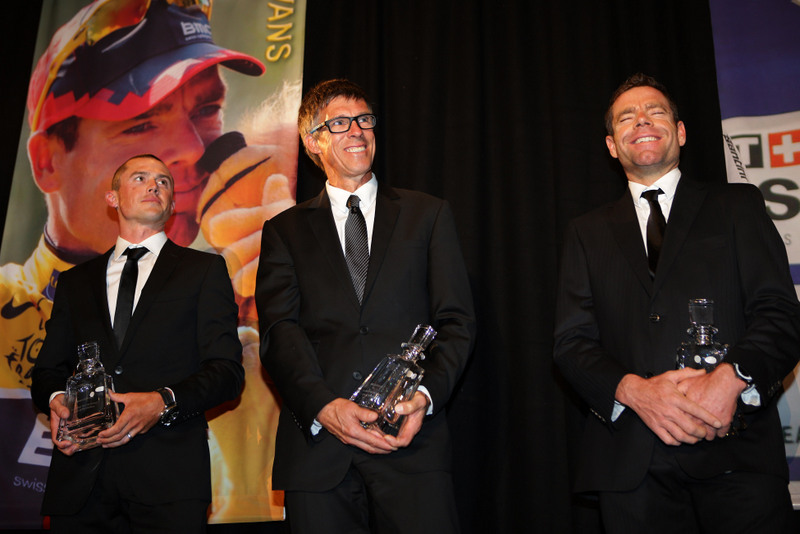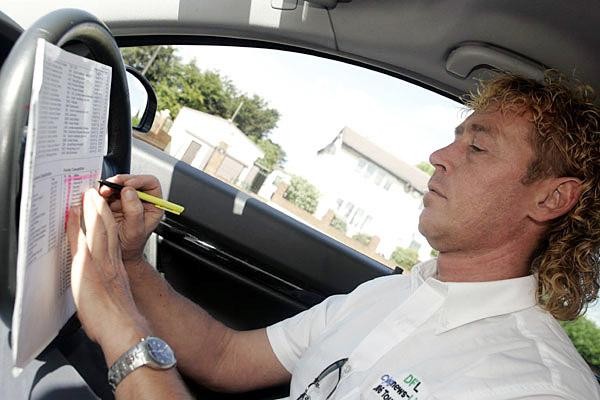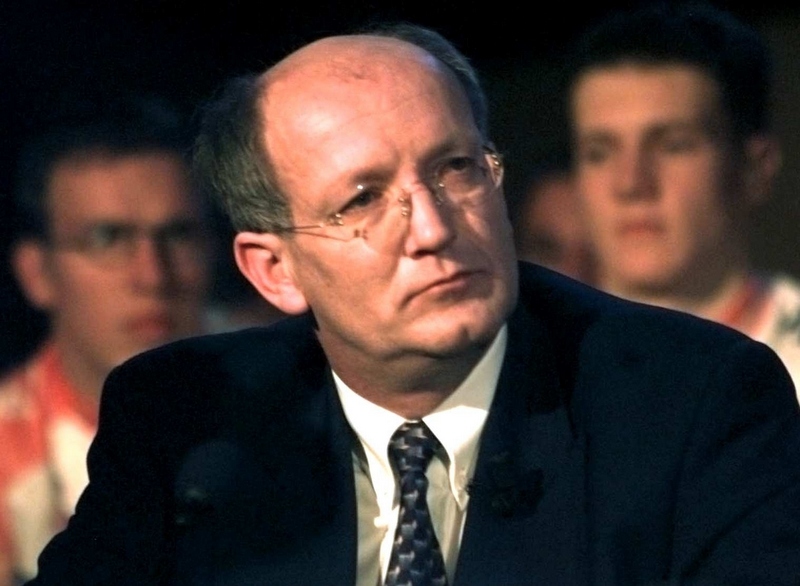Remembering Phil Anderson's first Tour of Flanders podium
Looking back at the Australian's successful 1985 season





In the mid-1980s, Panasonic was the team to beat in the Spring Classics. The team run by Peter Post, himself a Paris-Roubaix winner, was created following the fall out he had with Jan Raas in 1983 which saw the end of the TI-Raleigh squad.
Raas took six riders and created the Kwantum-Decosol team, today its known as LottoNL-Jumbo, while seven riders followed Post to the new Panasonic team. Phil Anderson had ridden for the Peugeot team since the 1980 season where he become the first non-European rider to wear the yellow jersey at the Tour de France in 1981, won a Tour stage the next year and followed that with 1983 victory at the Amstel Gold Race. Anderson also finished ninth at Flanders and fourth at Liège-Bastogne-Liège, the first time he would finish inside the top ten of a monument.
Anderson became one of the inaugural signings for Post's new team along with Belgian Eric Vanderaerden with his results from 1984 including second place at Liège–Bastogne–Liège behind Sean Kelly and finishing tenth overall at the Tour.
That year the team took victory at the Tour of Flanders via Johan Lammerts while Ludo De Keulenaer and Vanderaerden made it three Panasonic riders inside the top ten. Defending champion Raas was out of the race after a crash at Milan-San Remo and would never ride Flanders again after his 1983 victory. Jacques Hanegraaf was the best finisher for Raas' Kwantum Hallen – Yoko team in 11th place, crossing the line at the end of the group that also included Anderson in 23rd place.
1985 would be the best year of the Australian's career in which he won the overall at the Critérium du Dauphiné Libéré, Tour Méditerranéen Cycliste Professionnel and the Tour de Suisse, finished fifth overall at the Tour and won the one-day races E3 Prijs Vlaanderen and Rund um den Henninger Turm.
After his breakthrough ride in 1983, Anderson explained to Cyclingnews he was feeling confident of a good result on the morning of the race.
"Two years previously I got a taste of being in the leading group from then I knew that I would be close to being a serious contender at the event," Anderson said. "Once you have a taste in a huge race like that, and living in Flanders myself, you get the hunger to try and win the event. There were a couple of races that I really wanted to win in my career and Flanders was once of those."
The latest race content, interviews, features, reviews and expert buying guides, direct to your inbox!
While today there is an Australian registered team, Orica-GreenEdge, and Australian's ensconced in the WorldTour, Anderson was a pioneer forging a career in a foreign country, team and tongue. For an Australian to be challenging for Vlaanderens mooiste, Flanders' finest, may have appeared odd but Anderson was proven on the cobbles and bergs.
With his rich vein of form that saw him win E3 and finish fourth at De Brabantse Pijl, Anderson would start the Tour of Flanders as a protected rider for Panasonic in one of the coldest ever editions held of the race that saw only 24 riders finish the race. Five of those would be Panasonic riders.
The race was described by historian Rik Vanwalleghem as follows. "It was a legendary Ronde, one which wrote Sport with a capital S. It was as cold as Siberia all day and the rain fell in torrents," Vanwalleghem wrote. "Of the 173 starters only 24 were counted in at the finish. In this apocalyptic background Eric Vanderaerden got back to the front after looking beaten to ride 20km at the head of the race alone. Impressive."
With the weather taking its toll on the peloton, the race was starting to split up while the contenders started to make their moves. As the 271km race was entering its final hour-and-a-half, Anderson described the scenario, which led to the race-winning move.
"In the last 50km or so there was a rider up the road, Hennie Kuiper, and my teammate Vanderaerden tried to bridge up to Kuiper," Anderson said. "It was kind of a false resistance by Vanderaerden who was stuck in the middle of the peloton and Kuiper as he was maybe a couple of meters in front of the peloton and you could see Kuiper was 100-150 metres ahead. I jumped across to Vanderaerden to take him up to Kuiper so there were three of us in the front."
Kuiper, the 1981 winner of the race, was a former TI-Raleigh rider but had joined Raas' Kwantum Hallen–Yoko team in 1984 but would leave after just one season to join the Verandalux-Dries team.
Having won Milan-San Remo earlier in the sprint, Kuiper was disadvantaged by Panasonic's numerical advantage in the three-man breakaway but represented a real threat for victory. However it would be Anderson's own teammate who dashed his hopes of victory.
"The second last climb this particular year, as it's all changed now, was Muur de Geraardsbergen and the three of us had maybe 30 to 45 seconds lead on the chasing peloton," he said. "I was riding on the front on the cobbled section in the last 100 metres of the climb. Vanderaerden was yelling at me to ease up a little bit so I eased up a little bit and as I did, Vanderaerden attacked. I just had to sit with Kuiper as Vanderaerden rode away."
Vanderaerde, the Belgian national champion, was riding away to victory in the biggest Belgian race on the calendar while Anderson could only watch on with second place his best offer. Vanwalleghem forget to add it was Anderson who had Vanderaerde "looking "beaten".
"On the Bosberg with 15km to go, Vanderaerden was 15 seconds ahead and I couldn't really chase down a teammate, while the peloton was 45 seconds behind or so," Anderson recounted. "We couldn't really ease up or we'd be caught. Kuiper was on the front trying to pull back Vanderaerden but he was pretty tired. I ended up attacking Kuipers and finishing second.
Vanderaerden's winning margin was 41 seconds over Anderson and 1:01 minutes over Kuiper. Walter Planckaert finished eighth for Panasonic to cap off a memorable day for the team but a frustrating one for Anderson who admitted to being "pretty pissed off" after crossing the line. Another Australian, Alan Peiper, was the last rider to finish the race riding for Peugeot. Peiper would go onto to ride for Panasonic, posting a career best seventh at Flanders with the team in 1987.
While Post was celebrating one-two and successive victories with Panasonic, Raas could only watch on with Adrie van der Poel, a future winner of the race in 1986, he best placed rider and only finisher in 15th place.
The tension of Post and Raas would replaced with that of Anderson and Vanderaerden although this wouldn't be a long running feud.
"It was frustrating, I can't remember what the plan was at the team meeting that day, but Vanderaerden obviously thought he was the leader but that's water under the bridge," Anderson said with a laugh.
Foiled again in Gent-Wevelgem
In the 1980s Gent-Wevelgem was wedged between Flanders and Roubaix whereas now it's the weekend before Flanders. After being the stronger of the two but unable to chase down his teammates attack at Flanders, Anderson was given the nod over Vanderaerden to lead the team at the classic after a visit from Post to cool the tensions between the two.
"Peter Post came round to see me and talk about it as he knew I was upset," he said. "He didn't want any rift in the team so he tried to pacify things. He said that Vanderaerden would work for me at Gent-Wevelgem and he assured that me that the team would be working for me after Flanders."
Post's attempt at reconciliation though fell by the roadside with the Belgian coming up trumps.
"At Gent-Wevelgem Vanderaerden beat me again," lamented Anderson of being being bested by the green jersey winner of the 1984 Tour. "It was all together (at the finish) and I kicked out of the last corner but Vanderaerden came around me, which was hard to take."
Anderson would finish runner up at Flanders again in 1988, narrowly losing to former Panasonic teammate Eddy Planckaert after almost seven-and-a-half hours in the saddle but it was the 1985 race which represented his best chance at victory.
"The first time was frustrating being held back were the second time in '88 to Planckaert, I was there but I lost because I wasn't fast enough in the sprint," he said. "In '85 I lost because of a teammate … to be in that situation is pretty rare."
The wait continues in 2015 for an Australian winner of the race with Stuart O'Grady in 2003 (third) and Heinrich Haussler, although racing under a German licence in 2009 when he came second, the only riders to grace the podium in De Ronde since Anderson's exploits.
Anderson stayed with Panasonic until the end of the 1987 season, moving across to the new TVM team in 1988. He then moved to Motorola in 1991, finishing his career in 1994 on a high by winning the gold medal in the team time trial at the Commonwealth Games.